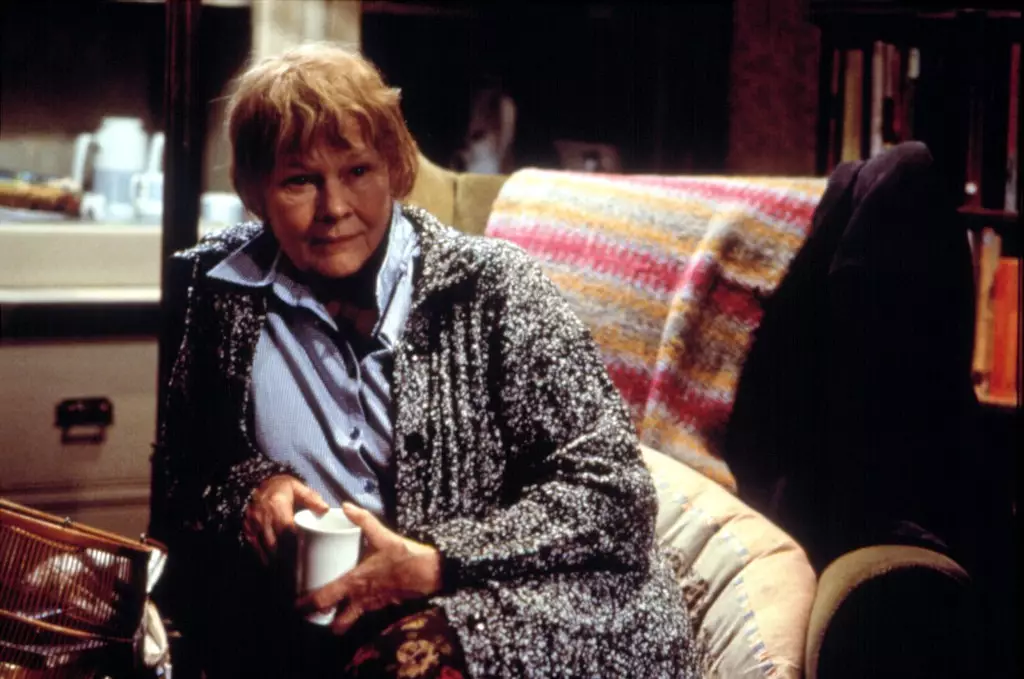Dame Judi Dench is no stranger to portraying characters wrapped in profound depth and emotional struggle. Her nomination for an Oscar for her poignant role as Iris Murdoch in the film “Iris” shines a spotlight on an issue that haunts not just those on the screen, but lives in the everyday realities of millions. The ongoing dementia crisis in the UK is one that is often overlooked, despite its staggering impact. Nearly one million individuals are grappling with dementia—an insidious condition that commonly manifests as Alzheimer’s disease—yet one in three endure the unrelenting pain of living without a formal diagnosis.
Such statistics are alarming, yet they barely scratch the surface. Within the confines of England’s healthcare system, those seeking clarity on their cognitive decline are often left waiting. The irony of a system designed to protect health leaving patients stranded is a grim reality. For many, the wait for a diagnosis spirals into unnecessary emotional turmoil that further complicates their already vulnerable statuses.
The Call for Change: A Campaign Ignites Hope
The crux of this crisis has led organizations like Alzheimer’s Research UK to ignite the “Dementia Unseen” campaign—a vital initiative gaining momentum due to the support of high-profile figures like Dench. The call to action could not be more urgent. Proposed measures advocate for a minimum six-week wait for GP referrals to specialists and a comprehensive diagnosis and treatment plan established within 18 weeks. Such timelines are not mere wishes; they are lifelines for those trapped in a fog of uncertainty.
With the number of individuals diagnosed with dementia projected to soar by 43% by 2040, maintaining the status quo is not an option. The recent government decision to abandon a target for diagnosing 66.7% of those over 65 suffering from dementia is not only disappointing—it’s a step back that could cost lives and futures. To abandon such a fundamental commitment to diagnosis is to abandon hope for thousands who deserve clarity and assistance in navigating this harrowing journey.
The Human Element: Stories of Heartbreak and Resilience
At the heart of Dench’s advocacy is a profound empathy that recognizes the human element in the bureaucratic mishmash. Her words resonate deeply: “Dementia doesn’t just take away memories—it can take away identity, connection, and the future you thought you had.” This statement encapsulates the multi-faceted assault dementia levies on individuals and families alike. Memories may fade, but the essence of who we are—our identities, relationships, and legacies—are fundamentally threatened.
Consider the agony faced by families witnessing their loved ones fade without explanations. The emotional toll of this uncertainty not only fractures familial bonds but raises existential questions regarding what it means to live meaningfully as individuals face the relentless specter of cognitive decline. Dench’s insight is a reminder that every moment lost while waiting for a diagnosis is time irretrievably lost—time that could have been spent finding joy in shared moments, creating lasting memories, and planning for a future that, although uncertain, could still hold promise.
Transforming Sorrow into Action
This isn’t merely a health issue; it’s a poignant societal challenge. The large number of individuals currently navigating life without answers is not just a statistic; it embodies a distinct tragedy. The suffering induced by an undiagnosed cognitive condition—this shadowy enemy—could be alleviated through prompt intervention. As Hilary Evans-Newton, Chief Executive of Alzheimer’s Research UK, aptly pointed out, “Everyone who has dementia should have the right to know the disease or diseases causing it, and to be diagnosed early enough to get treatments that help with its symptoms.”
Let us not underestimate the power of advocacy. Every signature on the petition, every public shared story, serves to amplify the urgency of the situation. Dench’s willingness to use her platform is a powerful reminder that celebrity voices can be harnessed for significant societal change, drawing attention to causes that might otherwise remain muffled.
In a world where time feels fleeting, and care structures sometimes falter, we must collectively commit to transforming grief into action, ensuring that those battling the demons of dementia have the support they deserve—and the timeliness that could redefine their journeys.


Leave a Reply